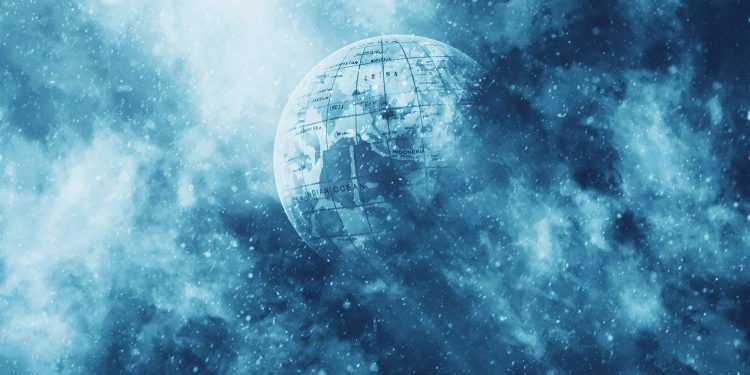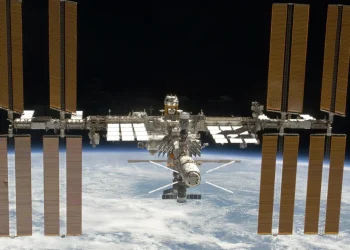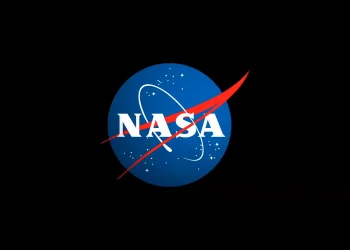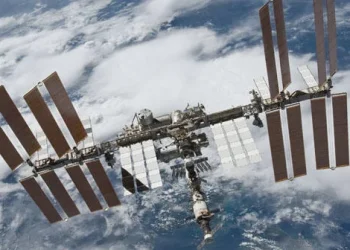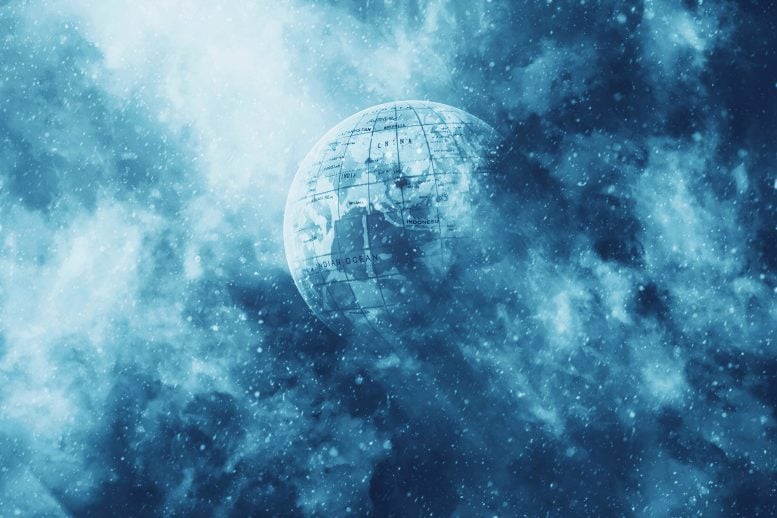
New research reveals how earth could overcome global warming.
For a long time, scientists believed that the gradual degradation of silicate rocks played a major role in regulating the earth’s climate. In this natural process, rain absorbs carbon dioxide (CO2) from the atmosphere and falls on the exposed rocky surfaces, where it slowly dissolves minerals. The resulting chemical reactions transport carbon and calcium in the oceans, where they serve as constituent elements for shells and coral reefs. For millions of years, these materials accumulate on the seabed, imprisoning carbon deep in the earth.
“When the planet warms up, the rocks are deteriorating faster and absorb more CO2allowing the earth to cool again, ”explains Dominik Hülse.
However, throughout the history of the earth, there were times when the whole planet was wrapped in snow and ice. Researchers note that these extreme glaciations cannot be explained only by the alteration of rocks, which means that other mechanisms must have contributed to the deep frost of the planet.
A key factor seems to be the way carbon is stored in seabed. As the atmospheric CO2 levels increase and the planet heats up, more nutrients, especially phosphorus, are transported to the oceans. These nutrients feed the growth of algae that captures carbon thanks to photosynthesis. When the algae die, they flow at the bottom of the sea, carrying with them the carbon trapped.
Feedback and oxygen loss loops
However, in a warmer world where the growth of algae is increased, the oceans also lose oxygen, which leads to the recycling of phosphorus rather than its long -term storage in sediments. This creates a feedback loop: the availability of more nutrients in water leads to the production of a greater number of algae, whose decomposition consumes more oxygen, resulting in the recycling of even more nutrients. At the same time, large quantities of carbon are buried in the sediments, which causes the earth to cool.
For several years, Hülse and Ridgwell have refined a computer model of the terrestrial system by integrating more of these processes. “This more complete model of the terrestrial system does not always gradually stabilize the climate after a warming phase, but can rather overcompensate and cool the earth well below its initial temperature – a process which can nevertheless take hundreds of thousands of years. In the computer model of the study, this can trigger a glacial period. With the mere alteration of silicates, we have not been able to simulate as extreme values.” Hülse.
Ancient glacial periods and atmospheric oxygen
The study shows that lower concentrations of oxygen in the atmosphere, which occurred in the geological past, could have triggered stronger nutrients, and thus cause extreme glacial periods of the beginning of the history of the earth.
While today’s humans add more CO2 In the atmosphere, the planet will continue to warm up. But according to the scientists’ model, this could again lead to long -term excessive cooling. However, the next event will probably be softer, because the current atmosphere contains more oxygen than in a distant past, which reduces the feedback of nutrients.
“In the end, is it really important that the start of the next glacial period takes place in 50, 100 or 200,000 years? Request Ridgwell. “We must now focus on the limitation of current warming. The natural cooling of the earth will not occur quickly enough to help us.”
In the next step, Hülse wishes to use the model to understand why the earth system has sometimes quickly recovered from past climatic disturbances, and how interactions with marine sediments contributed to it.
Reference: “instability in geological regulation of the earth’s climate” by Dominik Hülse and Andy Ridgwell, September 25, 2025, Science.
Doi: 10.1126/Science.adh7730
The study was partly funded by the Pôle of Excellence based on Marum “the bottom of the ocean – the unexplored interface of the earth”.
Never miss a major progress: join the Scitechdaily newsletter.
Follow us on Google, Discover and News.


